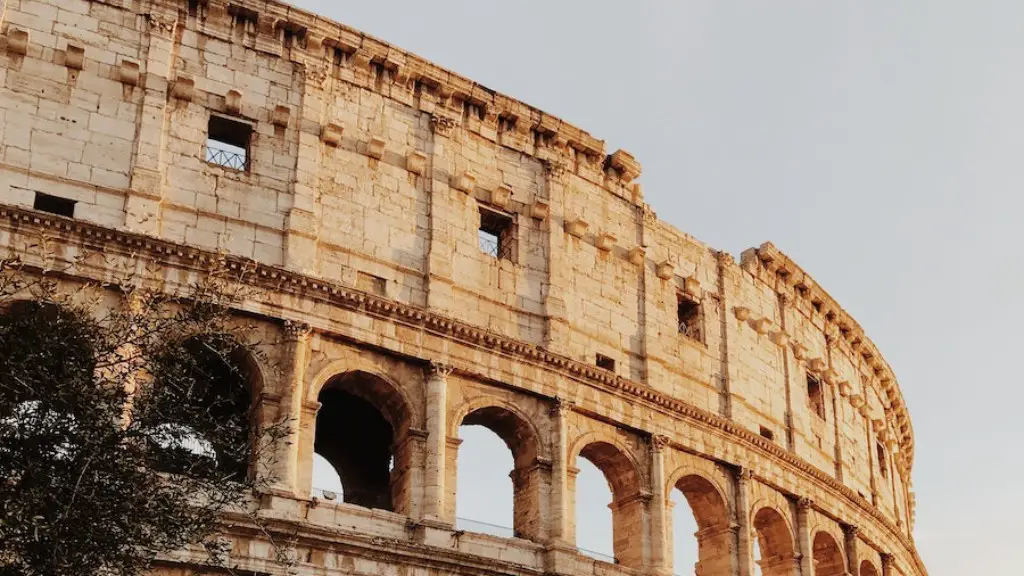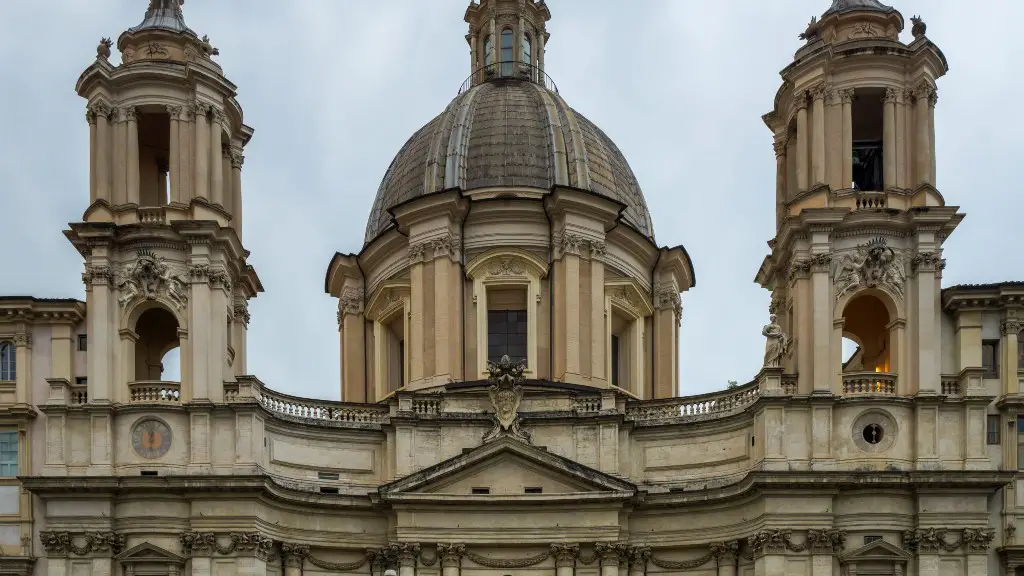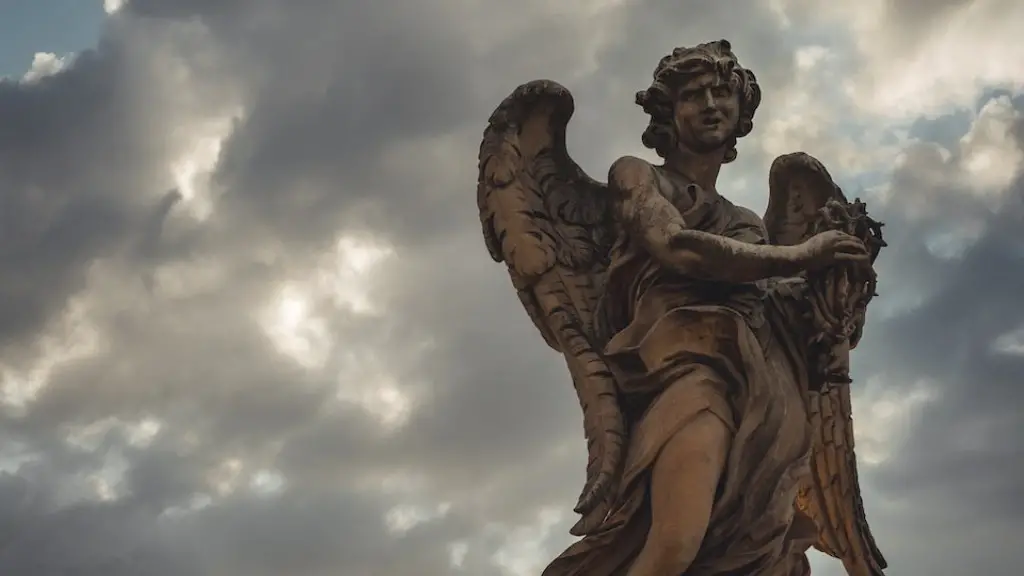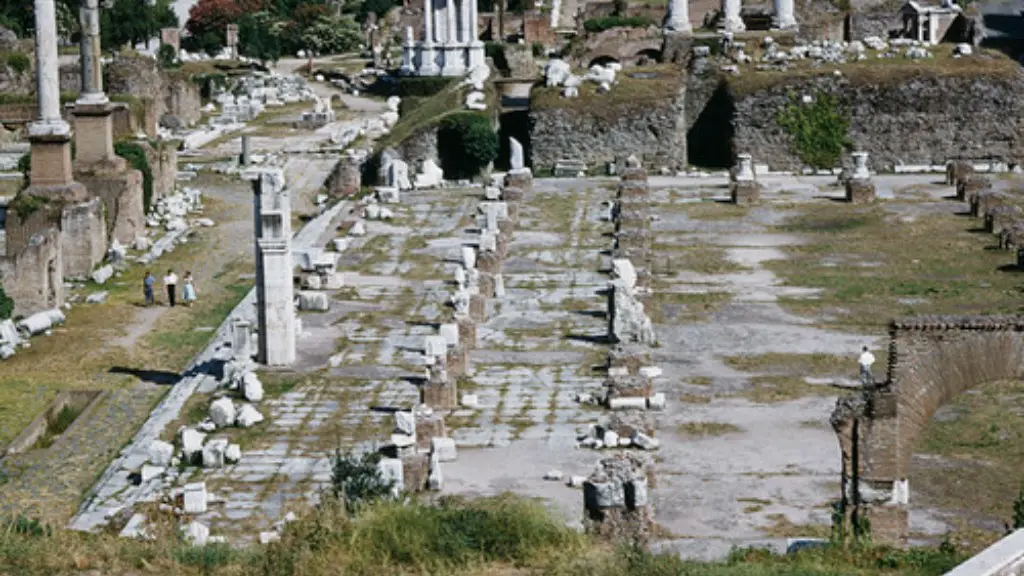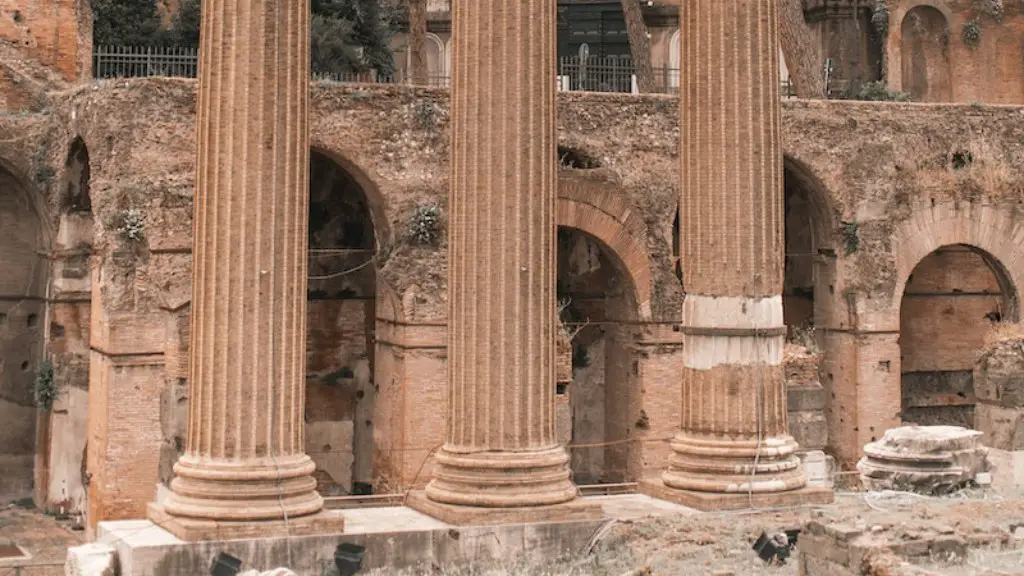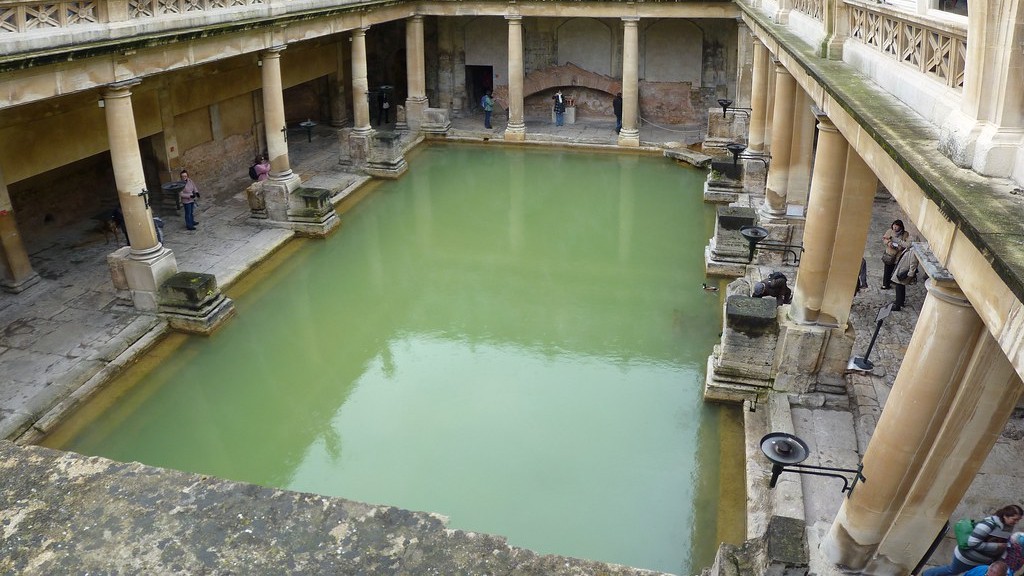Ancient Rome is one of the most powerful civilizations in human history. It emerged as an invincible force in the Mediterranean region during the mid-Republican period, around the 3rd century BC. It eventually became the most influential and powerful empire in the ancient world and the core of the ancient Western world. From the illustrious Roman Senate and civil bureaucracy to its legal system, coins, monuments and its engineering feats, Roman civilization has had an incalculable influence on the modern world.
The shift to imperial power began when Rome transformed itself from a republic to an empire in the 1st century BC. This was the beginning of a period of Roman domination that lasted for a millennium – until 476 AD, when the Western Roman Empire was delebrated by the capture of Rome by Germanic Ostrogoth forces. This period saw the Roman Empire expand its borders in the Mediterranean and beyond, as well as establishing significant trading links with Europe, North Africa and the Near East.
Under Julius Caesar (100–44 BC), one of the most famous Roman leaders and the first Roman Dictator, the expansion of the Roman Empire began. Starting in Gaul (now France, Belgium and part of Germany), the empire rapidly spread toward current day England, Spain, and conquered parts of the Middle East, including Israel, Jordan and parts of Western Turkey. Caesar also started a period of internal reform and social reform in Rome with the aim of rationalizing, simplifying and standardizing government processes and the legal system.
The reign of Augustus (63 BC – AD 14), Julius Caesar’s successor, saw the full transformation into an imperial structure, including the building of monumental architecture and engineering feats such as aqueducts and roads, which would help Rome rise to great power and prosperity. Under Augustus, internal reforms and expansion conquered the entire Mediterranean region and nearby lands, creating the most tightly controlled empire in the ancient world.
At the peak of the Roman Empire, provincial people were subjected to Roman religious practices, customs and laws, with a single currency based on coins produced in the capital. While Roman citizens were considered superior, non-Romans also enjoyed levels of political freedom and were sometimes allowed to join the Roman military, hold political office and participate in imperial bureaucracies.
Romans also engaged in extensive communal and religious organizations. Military, legal, political and economic initiatives all helped to extend the Roman world and its repute. From religion to warfare and the arts, the Romans explored virtually every form of human endeavor. While the Roman Empire started its decline in the 5th century, it remained an influential force in Europe until the Middle Ages and beyond.
Early Government and Administrative Systems
The Roman Republic, founded in 509 B.C., was an early form of government that would eventually give rise to Roman imperialism. Under the Republic, an elected senate of wise men called patricians enacted laws and made decisions on behalf of the citizens. This period of the Roman Republic saw Roman governmental strengths begin to emerge, including a strict sense of law and order, a disciplined and loyal military, a pioneering civil engineering project and a network of roads and aqueducts that stretched across the Empire.
It was also during this period of the Republican period that Roman leaders first began to show an imperialistic nature, as they sought to secure a larger and secure land for the Roman people. This was characterized by wars between Rome and its rivals such as the Samnites, Greeks and other Italian states. Through these wars, Rome became the most powerful city-state in the Italian peninsula.
The transition from the early government of the Republic to the imperial rule of the Roman Empire was gradual; it was marked by a series of civil wars and a shift in political power. The ultimate shift occurred in 31 BCE when Octavian, the great-nephew of Julius Caesar, defeated Mark Antony and Cleopatra in the Battle of Actium. After his victory, Octavian was granted the title of ‘Augustus’ by the Roman Senate and became the first Roman Emperor.
Internal Reforms Under Augustus
The ensuing Pax Romana, or Roman Peace, from 27 B.C. to 180 A.D., saw an era of peace and security within the Roman Empire. The newly-crowned Augustus embarked on a series of internal reforms, aiming to make Rome a major superpower for the first time. This period saw the emergence of many of the great Roman infrastructural projects such as roads, aqueducts and great public works. It also saw the expansion of many institutions and the reorganization of administration and governmental processes.
During this period, the Roman legal system underwent a major overhaul, with civil and criminal law laid down in a formal code. This code – a major achievement in Roman history – was called the Law of the Twelve Tablets, and laid the foundations for most of the modern legal system. Roman judges were now bound by the laws in the table and decisions could be adjudicated on a case-by-case basis. Roman economics also underwent a significant transformation, with the introduction of a single currency, and the Romans developed an extensive network of roads, bridges, canals and aqueducts that would last hundreds of years.
Augustus also embarked on a series of foreign conquests, which helped to expand the Roman Empire to its greatest-ever extent. This expansion included adding more provinces to the Roman world; annexing Egypt as a Roman province; and expanding its territories to the north and east, including Britain. This period also saw the growth of the Roman military and its role in the spread of Roman rule.
Ideal Society in the Roman Empire
The Roman ideal of a unified society included a mix of Roman citizenship, non-Roman subjects and civilian subjects who had no political rights. Full Roman citizenship was only granted to men, with women having few or no rights. Citizens of the Roman Empire were divided into two distinct classes: the Patricians, who were noble landowners and high-ranking military personnel, and the Plebeians, who were the common people. Roman mythology was also a major part of the culture, with gods and goddesses regarded as the protectors and guardians of Rome.
The Roman ideal of a unified society helped to ensure a level of social and political stability across the Empire. This, in turn, enabled Rome to engage in extensive trade and diplomatic relations with other states and empires. It also allowed Rome to propagate its religions and establish a large number of colonies, whose loyalty and obeisance enabled the continuation of Roman rule.
The Roman Empire was able to sustain its level of power and wealth through its strong infrastructure, with the development of a single currency, need to maintain its transportation network and efficient bureaucracy, and its prudent use of taxation and laws. Roman law, literature and culture was also spread across its provinces, which is the basis of our modern legal system.
Decline of the Roman Empire
The Roman Empire started to decline in the 5th century due to a combination of factors, including political corruption, economic decline, military over-expansion and religious splits. Rome experienced an influx of barbarian invasion; these new invaders plundered the cities and destroyed Roman infrastructure, while a poor state of government and political power struggles resulted in a weakened state. The fall of the Empire shook the world, and its impact was immense, marked by the end of an era of imperial power.
The failure of Roman leadership is largely to blame for the decline of the Roman Empire. In particular, the Roman Empire was over-stretched and under-regulated, and unable to keep up with the changing demands of the modern world. Christianity, which had established itself by this point, also began to compete with Roman paganism and it’s popularity slowly grew, culminating in the conversion of the Emperor Constantine in the 4th century.
In the end, the Roman Empire was no match for its enemies, and it gradually faded from power. This event ushered in a new era of European history and centuries of religious and political turmoil. But it also left behind an impressive legacy, seen in monuments, architecture, literature, engineering and its legal system, to this day.
Cultural Aftermath
The impact of the Roman Empire is still felt today. Stonework, monuments, roads, cities and infrastructure built by the Romans remain throughout Europe, the Middle East and North Africa. Latin, the language that the Romans spoke and wrote in, is still studied and used in Europe, and most Romance languages have been derived from Latin. Roman law continues to shape legal systems across the world, while seminal Roman texts such as Virgil’s Aeneid and Julius Caesar’s The Gallic Wars are still studied and celebrated in literature.
Roman culture is also found in the modern world, from architecture to religion, but particularly in our contemporary view of politics, warfare and diplomacy. Roman innovations such as infrastructure and military engineering, as well as their means of administrative and financial control, account for the stability and longevity of their Empire. This stability extended throughout the Mediterranean and allowed for the accumulation of massive wealth, which has had a lasting impact on the modern world.
Roman civilization also contributed to the West’s understanding of philosophy, science and literature. Its legacy includes famous historians and writers such as Cicero, Livy, and Pliny the Elder, who were able to provide a chronicle of the development of Rome, its history and its people.
The legacy of the Roman Empire is still felt today across the globe. Its impact on culture, politics and the economy has been far-reaching, and it has served as an inspiration to countless civilizations that followed. Its influence can be seen in the monuments and legacies it left behind, as well as in the very philosophies and ideas that have become so important in today’s modern world.
